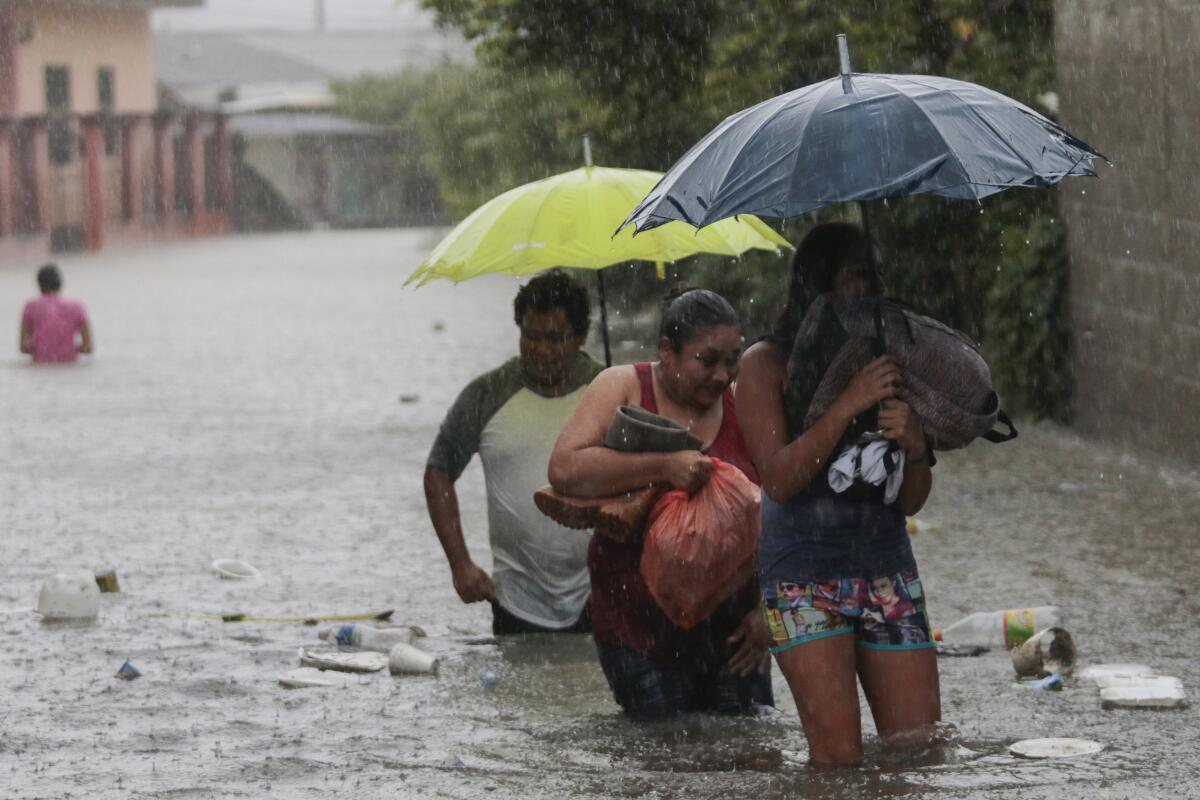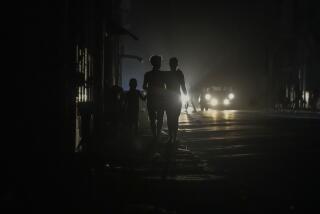Eta brings heavy rains and deadly mudslides to Honduras

TEGUCIGALPA, Honduras — Eta moved into Honduras on Wednesday afternoon as a weakened tropical depression but still bringing the heavy rains that have drenched and caused deadly landslides in the country’s east and in northern Nicaragua.
The storm no longer carried the winds of the Category 4 hurricane that battered Nicaragua’s coast Tuesday, but it was moving so slowly and dumping so much rain that much of Central America was on high alert. Eta had sustained winds of 35 mph and was moving westward at 7 mph. It was 70 miles east of Tegucigalpa, the capital.
The long-term forecast shows Eta taking a turn over Central America and then re-forming in the Caribbean — possibly reaching Cuba on Sunday and southern Florida on Monday.
Heavy rain was forecast to continue across Honduras through at least Thursday as Eta moved northward through the country toward Tegucigalpa and northern city of San Pedro Sula.
Before the center of Eta had even reached Honduras, hundreds of residents had been forced from their homes by floodwaters.
Early Tuesday, a 12-year-old girl died in a mudslide in San Pedro Sula, said Marvin Aparicio of Honduras’ emergency management agency.
On Wednesday afternoon, the agency confirmed the death of a 15-year-old boy in the central town of Sulaco, though details were not immediately available. That brought the storm’s death toll to at least four in Nicaragua and Honduras.
Aparicio said Wednesday that about 379 homes had been destroyed, mostly by floodwaters. There were 38 communities cut off by washed-out roads and five bridges in the country were wiped out by swollen rivers.
Among those rescued from their flooded homes were 40-year-old Oscar Armando Martínez Flores, his wife and seven children. Their home near the Lancetilla River in northeast Honduras flooded. They made it out only with the clothes they were wearing.
“The rains began Monday and the river overflowed,” Martínez said Wednesday from a sports complex serving as a shelter in the city of Tela. “The firefighters and police arrived to take us out because the houses were flooded.”
Martínez was already in dire straits before the storm. A construction worker, he hadn’t been able to find work in eight months since the COVID-19 pandemic began there. He has been selling tortillas to provide for his family.
Francisco Argeñal, chief of meteorology at Honduras’ Center for Atmospheric, Oceanographic and Seismic Studies, said he expected more of the country’s rivers to jump their banks.
The U.S. National Hurricane Center forecast that parts of Nicaragua and Honduras could receive 15 to 25 inches of rain, with 40 inches possible in some isolated parts.
Eta left a path of destruction across northern Nicaragua starting with the coastal city of Bilwi.
In Bilwi on Wednesday, civil defense brigades worked to clear streets of downed trees, power lines and sheets of metal roofing. Some neighborhoods were completely flooded. Vice President and First Lady Rosario Murillo said more than 51,000 families remained without power in some areas.
“The debris teams are starting to work and we still can’t give a sense of what happened,” said Ivania Díaz, a government official in Bilwi. “We have seen very humble homes completely destroyed.”
South of Bilwi, closer to where Eta came ashore Tuesday, the seaside indigenous Miskito community of Wawa Bar was devastated. The military had evacuated the community before Eta hit, but what residents found Wednesday was distressing. Wind-twisted trees, shredded roofs and some structures damaged beyond recognition sat within view of the sea.
“There’s nothing standing here,” an unidentified resident told a local television station. “Wawa Bar is now a Miskito community where destruction reigns.”
More to Read
Sign up for Essential California
The most important California stories and recommendations in your inbox every morning.
You may occasionally receive promotional content from the Los Angeles Times.










